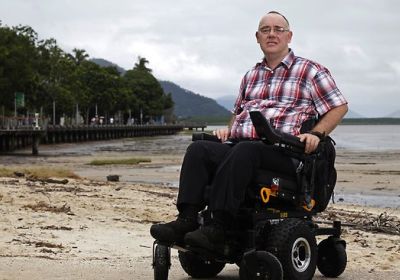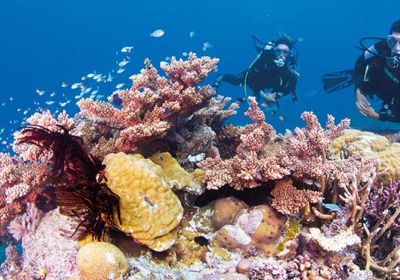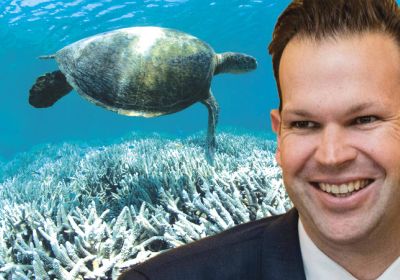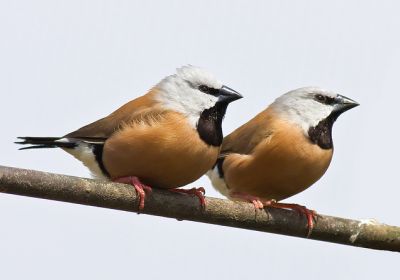-
-
-
-
-
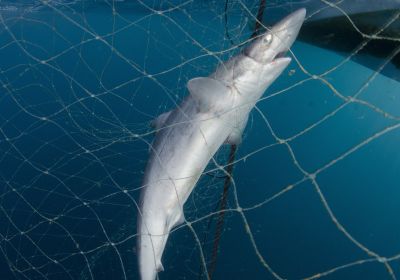 WWF Australia bought and retired a $100,000 shark fishing licence on the Great Barrier Reef last month. They called for donations to cover the cost and so much was donated — from more than 30 countries — that they are now looking to purchase a second licence. WWF-Australia conservation director Gilly Llewellyn said: “People see our idea as a practical way to save sharks and prevent dugongs, turtles and dolphins being killed as bycatch.”
WWF Australia bought and retired a $100,000 shark fishing licence on the Great Barrier Reef last month. They called for donations to cover the cost and so much was donated — from more than 30 countries — that they are now looking to purchase a second licence. WWF-Australia conservation director Gilly Llewellyn said: “People see our idea as a practical way to save sharks and prevent dugongs, turtles and dolphins being killed as bycatch.” -
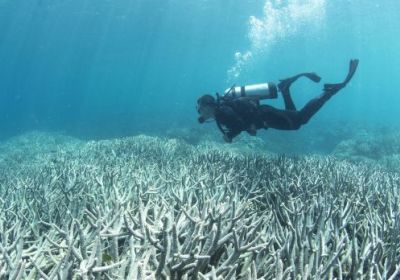 The chief investigator for Coral Watch Justin Marshall who spent a week this month conducting surveys on the reefs around Lizard Island has said parts of the Great Barrier Reef are suffering from “complete ecosystem collapse”, as fish numbers plummet and surviving corals continue to bleach. He said: “The lack of fish was the most shocking thing. I was seeing a lot less than 50% of what was there [before the bleaching]. Some species I wasn’t seeing at all.”
The chief investigator for Coral Watch Justin Marshall who spent a week this month conducting surveys on the reefs around Lizard Island has said parts of the Great Barrier Reef are suffering from “complete ecosystem collapse”, as fish numbers plummet and surviving corals continue to bleach. He said: “The lack of fish was the most shocking thing. I was seeing a lot less than 50% of what was there [before the bleaching]. Some species I wasn’t seeing at all.” -
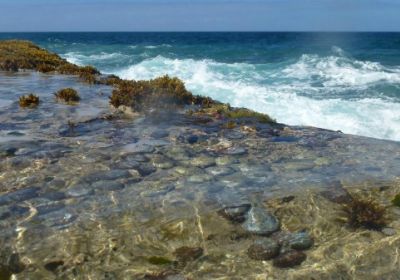 A 700 kilometre stretch of mangrove shoreline in the Gulf of Carpentaria has died, James Cook University Professor Norm Duke told the Australian Mangrove and Saltmarsh Network Conference in Darwin in early July. Duke, a spokesperson for the Australian Mangrove and Saltmarsh Network, said the scale and magnitude of the loss was "unprecedented and deeply concerning" and he had no doubt the dieback was related to climate change.
A 700 kilometre stretch of mangrove shoreline in the Gulf of Carpentaria has died, James Cook University Professor Norm Duke told the Australian Mangrove and Saltmarsh Network Conference in Darwin in early July. Duke, a spokesperson for the Australian Mangrove and Saltmarsh Network, said the scale and magnitude of the loss was "unprecedented and deeply concerning" and he had no doubt the dieback was related to climate change. -
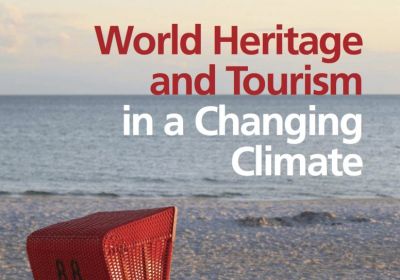 All references to Australia were removed from the final version of a major UN report on climate change after the Australian government intervened, arguing that the information could harm tourism. The report World Heritage and Tourism in a Changing Climate, initially had a key chapter on the Great Barrier Reef, as well as small sections on Kakadu and Tasmanian forests. But when the Department of Environment saw a draft of the report, it objected, and every mention of Australia was removed.
All references to Australia were removed from the final version of a major UN report on climate change after the Australian government intervened, arguing that the information could harm tourism. The report World Heritage and Tourism in a Changing Climate, initially had a key chapter on the Great Barrier Reef, as well as small sections on Kakadu and Tasmanian forests. But when the Department of Environment saw a draft of the report, it objected, and every mention of Australia was removed. -
 At the start of the election campaign federal environment minister Greg Hunt came here to announce $50 million in new projects to boost water quality, including efforts to keep sediment, fertilisers and pesticides off the Great Barrier Reef. This announcement was partly to allay concerns over research showing 93% of the Reef had been bleached and dire predictions that the Reef will be dead in 25 years.
At the start of the election campaign federal environment minister Greg Hunt came here to announce $50 million in new projects to boost water quality, including efforts to keep sediment, fertilisers and pesticides off the Great Barrier Reef. This announcement was partly to allay concerns over research showing 93% of the Reef had been bleached and dire predictions that the Reef will be dead in 25 years. -
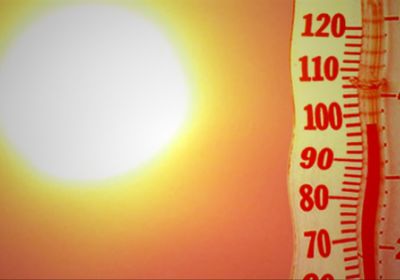 The Climate Council released this statement on May 2. * * * Climate records have tumbled during autumn with records shattered all over Australia. New records for the highest average monthly maximum temperature were set in April in Brisbane, Darwin and Hobart. Almost all of Australia's capital cities recorded at least 20 days with above-average maximum temperatures. The warm temperatures follow a record-breaking March in which Australia's average temperature was the warmest on record at 1.70°C above average.
The Climate Council released this statement on May 2. * * * Climate records have tumbled during autumn with records shattered all over Australia. New records for the highest average monthly maximum temperature were set in April in Brisbane, Darwin and Hobart. Almost all of Australia's capital cities recorded at least 20 days with above-average maximum temperatures. The warm temperatures follow a record-breaking March in which Australia's average temperature was the warmest on record at 1.70°C above average. -
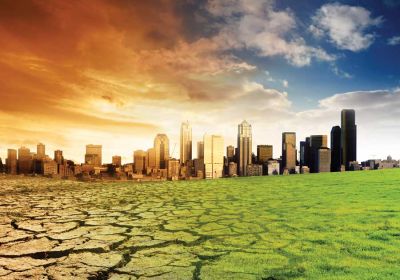 The May budget is just days away at time of writing, so while I don't know its exact details, I feel I can safely take an educated guess and suggest it probably won't include a fully-costed plan for a rapid transition to a post-carbon, zero emissions economy based on 100% renewable energy.
The May budget is just days away at time of writing, so while I don't know its exact details, I feel I can safely take an educated guess and suggest it probably won't include a fully-costed plan for a rapid transition to a post-carbon, zero emissions economy based on 100% renewable energy. -
 In many ways, environment minister Greg Hunt's attendance at the New York signing of the Paris Agreement on April 21 underscored the Coalition government's resistance to in taking real action to curb toxic carbon dioxide emissions.
In many ways, environment minister Greg Hunt's attendance at the New York signing of the Paris Agreement on April 21 underscored the Coalition government's resistance to in taking real action to curb toxic carbon dioxide emissions.
Great Barrier Reef
Great Barrier Reef
